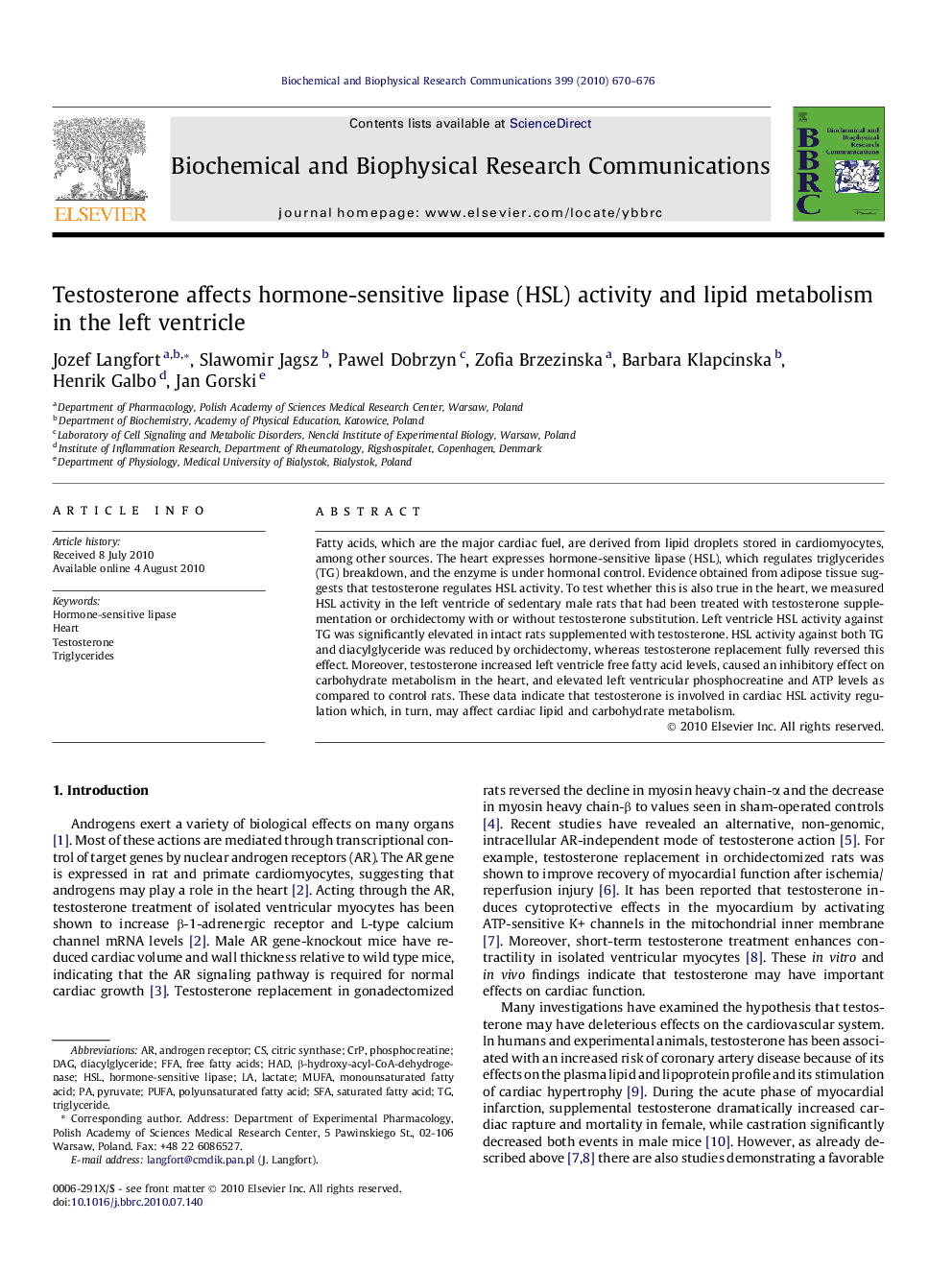| Article ID | Journal | Published Year | Pages | File Type |
|---|---|---|---|---|
| 1931668 | Biochemical and Biophysical Research Communications | 2010 | 7 Pages |
Fatty acids, which are the major cardiac fuel, are derived from lipid droplets stored in cardiomyocytes, among other sources. The heart expresses hormone-sensitive lipase (HSL), which regulates triglycerides (TG) breakdown, and the enzyme is under hormonal control. Evidence obtained from adipose tissue suggests that testosterone regulates HSL activity. To test whether this is also true in the heart, we measured HSL activity in the left ventricle of sedentary male rats that had been treated with testosterone supplementation or orchidectomy with or without testosterone substitution. Left ventricle HSL activity against TG was significantly elevated in intact rats supplemented with testosterone. HSL activity against both TG and diacylglyceride was reduced by orchidectomy, whereas testosterone replacement fully reversed this effect. Moreover, testosterone increased left ventricle free fatty acid levels, caused an inhibitory effect on carbohydrate metabolism in the heart, and elevated left ventricular phosphocreatine and ATP levels as compared to control rats. These data indicate that testosterone is involved in cardiac HSL activity regulation which, in turn, may affect cardiac lipid and carbohydrate metabolism.
Research highlights► Hormone-sensitive lipase regulates heart triglyceride breakdown. ► Testosterone is involved in cardiac hormone-sensitive lipase activity regulation. ► Testosterone increases free fatty acid, phosphocreatine and ATP levels in the heart. ► Testosterone decreases cardiac pyruvate and lactate content.
